Fall 2025 CI Symposium hosted by RCAC
The Rosen Center for Advanced Computing (RCAC) recently hosted its Fall 2025 Cyberinfrastructure (CI) Symposium, the fifth successful CI Symposium put on by the organization. Held at the Hall for Discovery and Learning Research at Purdue’s West Lafayette campus, this event’s theme was “Purdue Computing for Science: Applications, Challenges, and Ethics of AI & Simulation,” bringing together researchers, practitioners, and industry leaders to explore cutting-edge developments in the computational infrastructure that powers modern scientific discovery and innovation.
The Fall 2025 CI Symposium began with an hour-long student poster session. Both undergraduate and graduate students were able to participate, and any research surrounding computation for science or AI (ethics, governance, research, society, education, and policy) was accepted. There were 11 posters at the poster session, each being judged by a team of RCAC and CS team members. The top poster (announced later in the day) won a $1000 travel scholarship to a conference of their choice.
After the 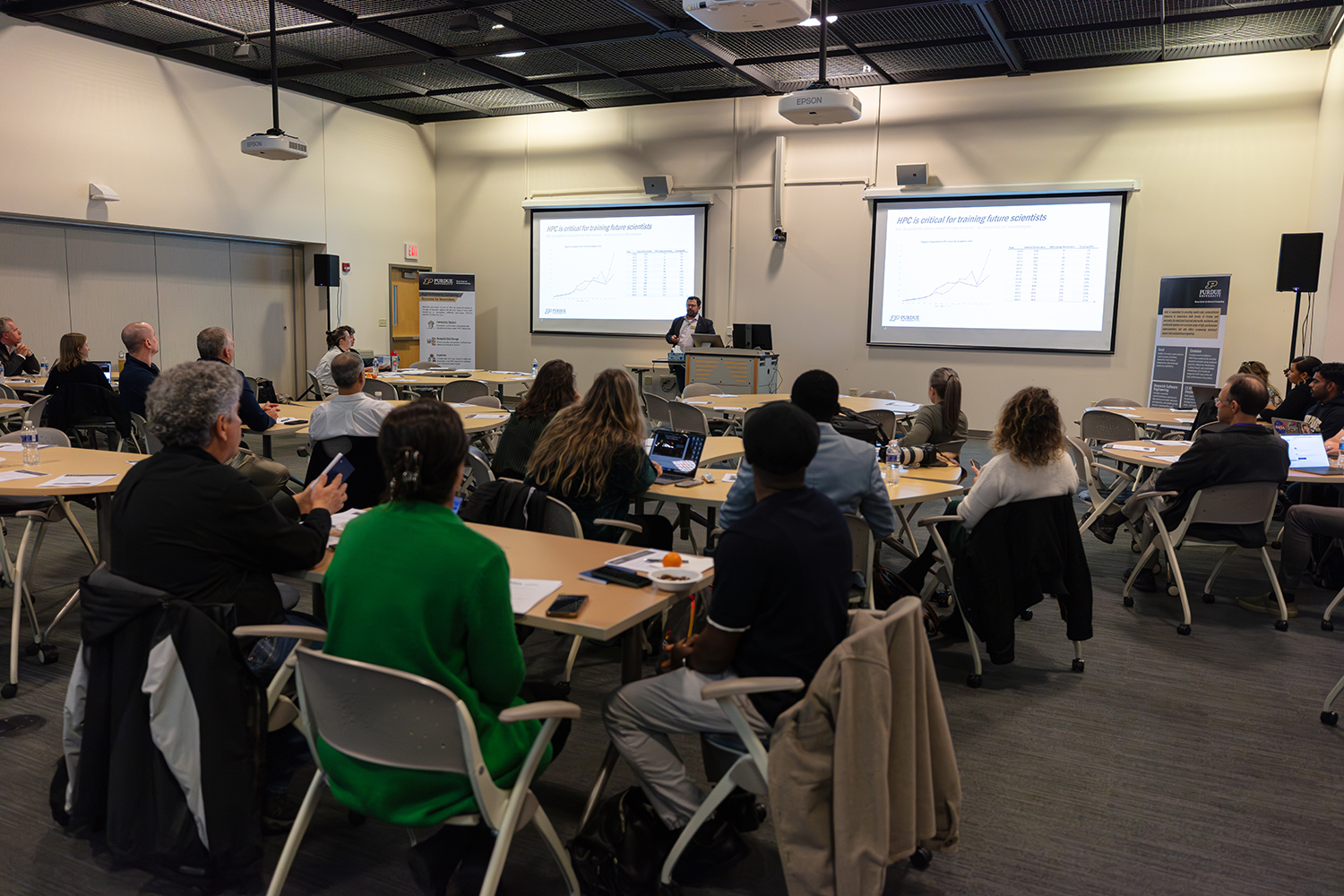 poster session, the day transitioned to the core of the symposium—presentations given by professionals with their feet firmly planted in AI technology and research. Preston Smith, Executive Director of RCAC, led with opening remarks and a discussion of who RCAC is and how the organization enables advanced AI research both throughout campus and nationwide. Smith was followed by the day's keynote speaker, Dr. Robbie K. Melton. Dr. Melton is the Acting Interim Vice President for Academic Affairs at Tennessee State University (TSU), as well as the Associate Vice President of the TSU SMART Innovation Technology Center. Her presentation, titled “Effective AI Tools for Transforming Higher Education,” focused on the practical applications of AI tools for educational enhancement. Following the keynote address, the list of speakers included:
poster session, the day transitioned to the core of the symposium—presentations given by professionals with their feet firmly planted in AI technology and research. Preston Smith, Executive Director of RCAC, led with opening remarks and a discussion of who RCAC is and how the organization enables advanced AI research both throughout campus and nationwide. Smith was followed by the day's keynote speaker, Dr. Robbie K. Melton. Dr. Melton is the Acting Interim Vice President for Academic Affairs at Tennessee State University (TSU), as well as the Associate Vice President of the TSU SMART Innovation Technology Center. Her presentation, titled “Effective AI Tools for Transforming Higher Education,” focused on the practical applications of AI tools for educational enhancement. Following the keynote address, the list of speakers included:
- Gerhard Klimeck, Elmore Chaired Professor of Electrical and Computer Engineering at Purdue University. Presentation title: “Nanohub | ChipsHub”
- Dr. Nicholas Brasovan, Curriculum Developer, Department of Computer Science, Purdue University. Presentation title: “Democratization of AI: Ethical Concerns”
- Prof. Andres Bejarano, Assistant Teaching Professor of Computer Science at Purdue University. Presentation title: “From Printing Press to ChatGPT: Lessons for Education in the Age of AI”
- Christabel Randolph, Associate Director at the Center for AI and Digital Policy. Presentation title: “AI Policy - Implementing AI governance in the U.S.”
- Dave Hart, CISL Division Director. Presentation title: “NAIRR Pilot Resources and Allocations Opportunities”
- Wilbur Ouma, HPC University Partnerships and Outreach Specialist at Argonne National Laboratory. Presentation title: “ALCF Lighthouse Initiative: Connecting Institutional Research Goals with National Lab Capabilities”
- Ananth Grama, Samuel D. Conte Professor of Computer Science at Purdue University. Presentation title: “Purdue Institute for Physical Artificial Intelligence (IPAI): Where Bytes Meet Atoms”
- Alejandro Strachan, Reilly Professor of Materials Engineering, Purdue University; Co-Director, NanoHub and ChipsHub. Presentation title: “FAIR data and Workflows to Accelerate Innovation”
- Habibur Rahman, Graduate Research Assistant, School of Materials Engineering, Purdue University. Presentation title: “Rational Computational Design of Next-Generation Semiconductors”
To conclude the 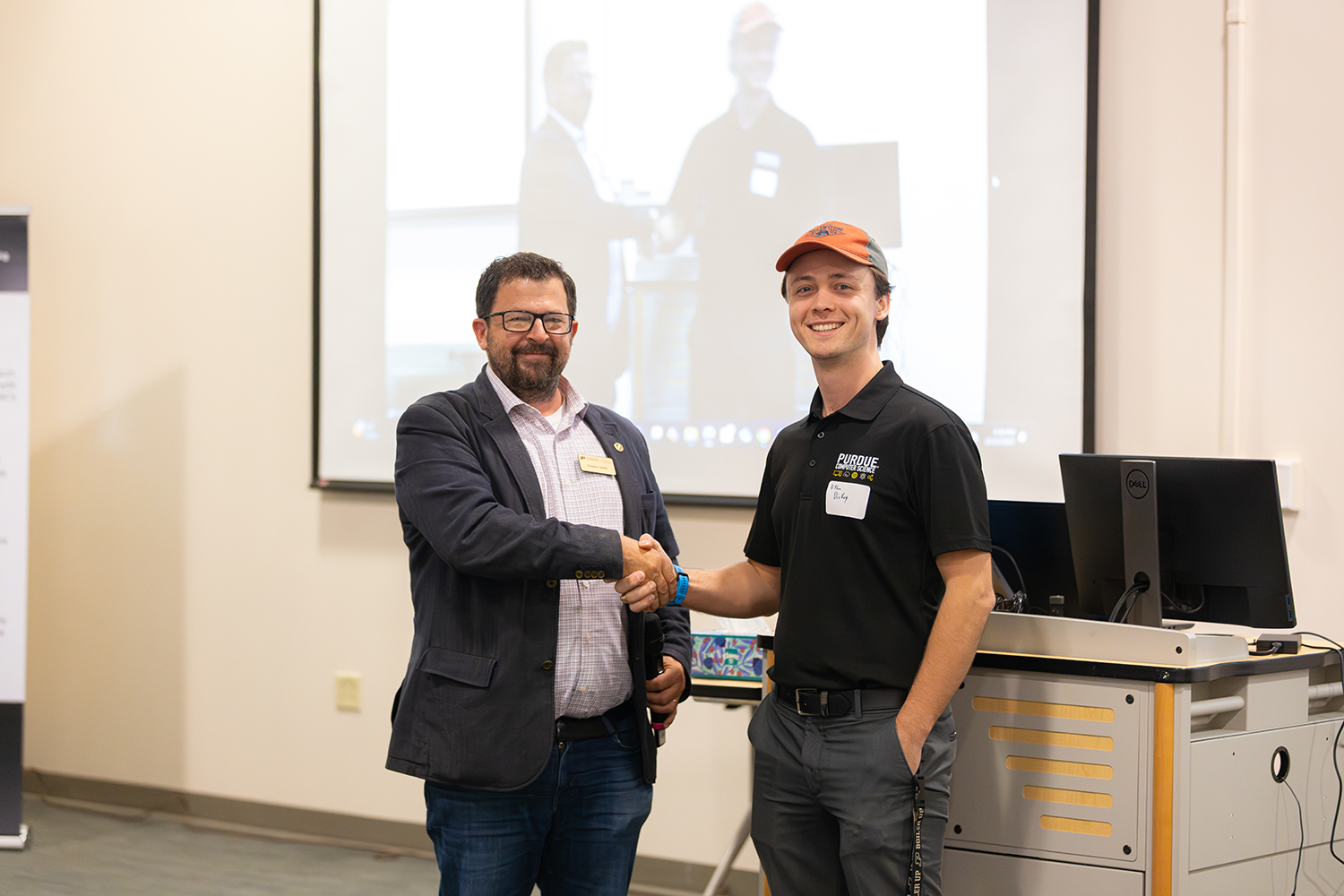 day, Smith returned to the podium to give closing remarks as well as to announce the winner of the poster session. “Top Poster” was awarded to Ethan Dickey, a PhD candidate in the Computer Science department at Purdue. His poster was titled “Governance by Design: A Spectrum of AI Teaching Tools for Computer Science.”
day, Smith returned to the podium to give closing remarks as well as to announce the winner of the poster session. “Top Poster” was awarded to Ethan Dickey, a PhD candidate in the Computer Science department at Purdue. His poster was titled “Governance by Design: A Spectrum of AI Teaching Tools for Computer Science.”
"I am deeply honored to have been selected for the Top Poster Award,” says Dickey. “This poster represents the culmination of two years of work with many collaborators, including my Co-PI Andres Bejarano, on how to integrate GenAI in education most effectively—without sacrificing pedagogy or student learning.”
Dickey noted that he will use his $1000 prize to attend the Association for Computing Machinery's Special Interest Group on Computer Science Education (SIGCSE) Technical Symposium 2026, taking place in February. He goes on to add that he’d like to thank RCAC for organizing the event and that he is excited to see what new opportunities emerge from the connections he has made at the CI Symposium.
A networking reception was held after the 2025 Fall CI Symposium. RCAC would like to thank VDURA and Pier Group for sponsoring the symposium and providing refreshments throughout, as well as food and beverages for the reception. Special thanks also to the MC for the event, Lisa Arafune; our poster session judges, Grace Lingley, Ibrahem Alshybani, and Fabrizio Cicala; the RCAC outreach and engagement team; and the CI Symposium committee members.
If you were unable to attend the symposium, you can view all presentations here: 2025 Fall CI Symposium
RCAC operates all centrally-maintained research computing resources at Purdue University, providing access to leading-edge computational and data storage systems as well as expertise and support to Purdue faculty, staff, and student researchers. To learn more about HPC and how RCAC can help you, please visit: https://www.rcac.purdue.edu/
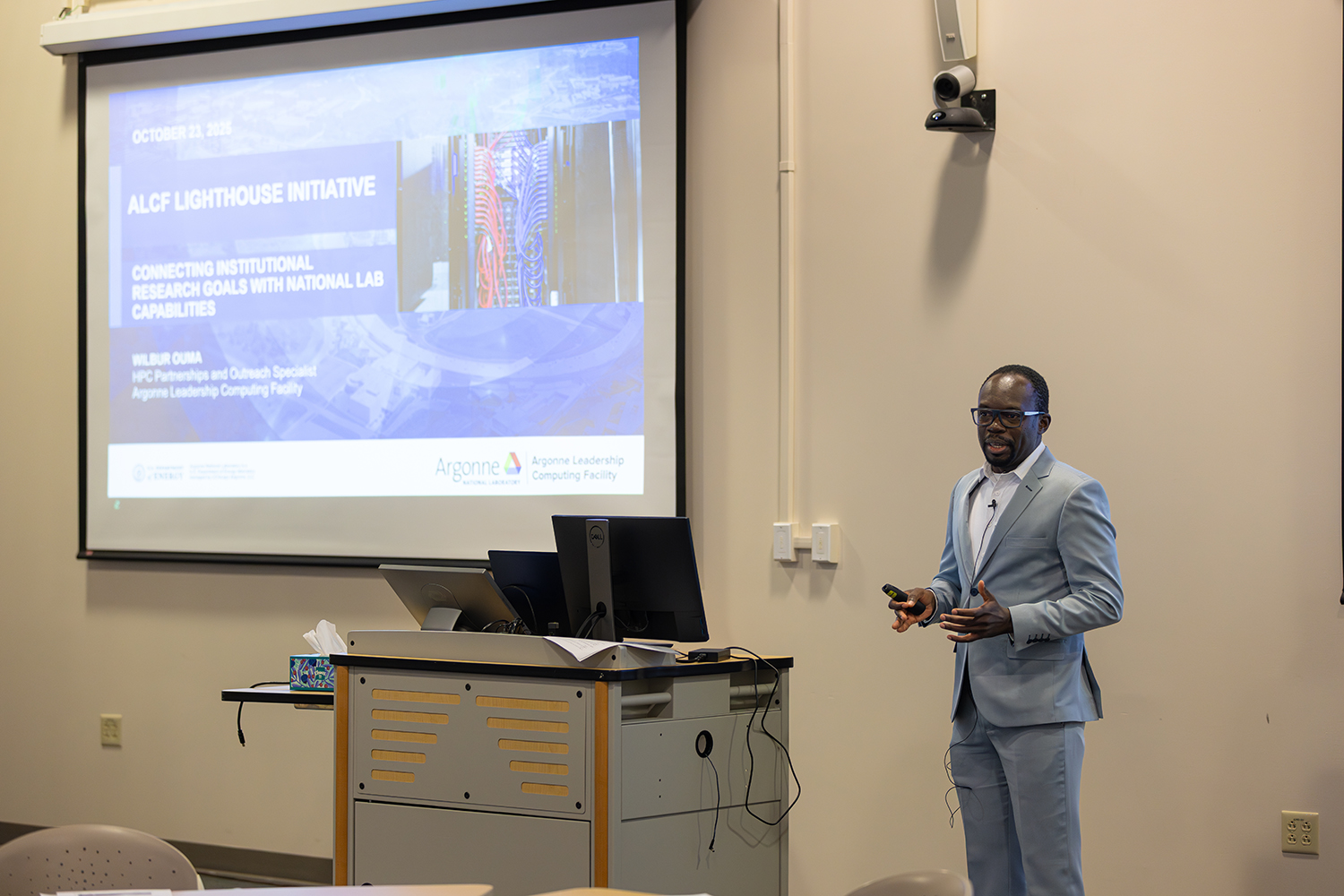
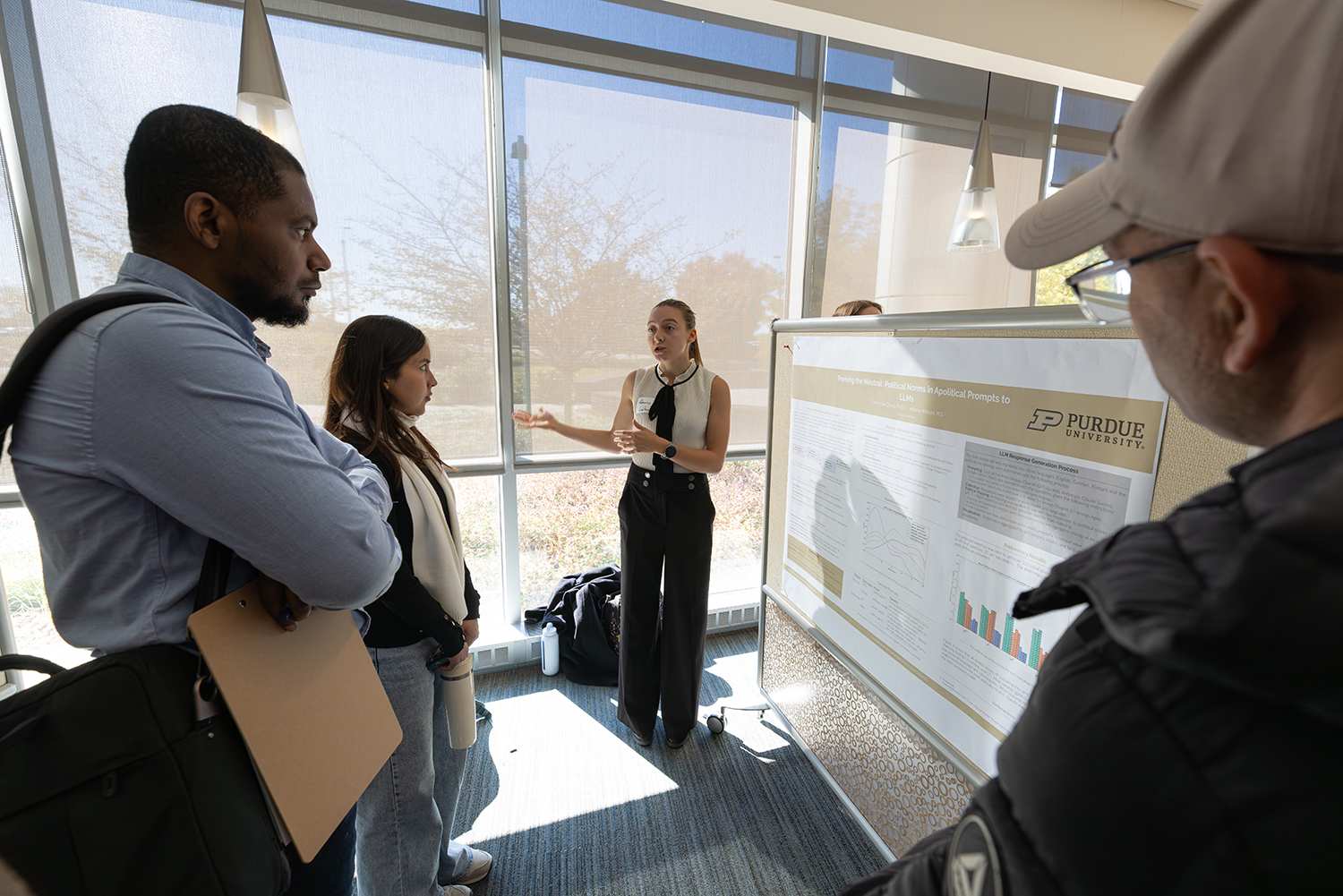
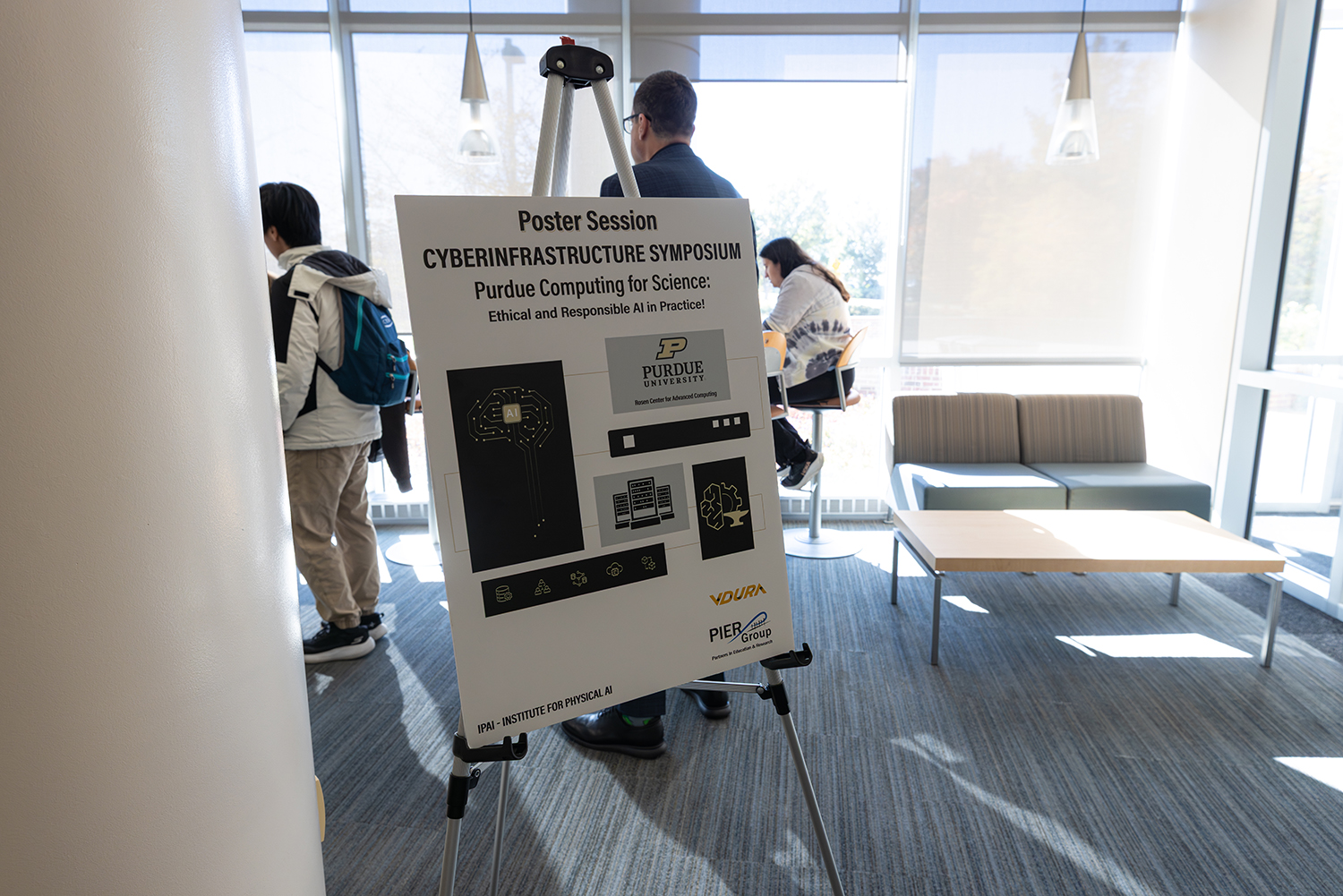
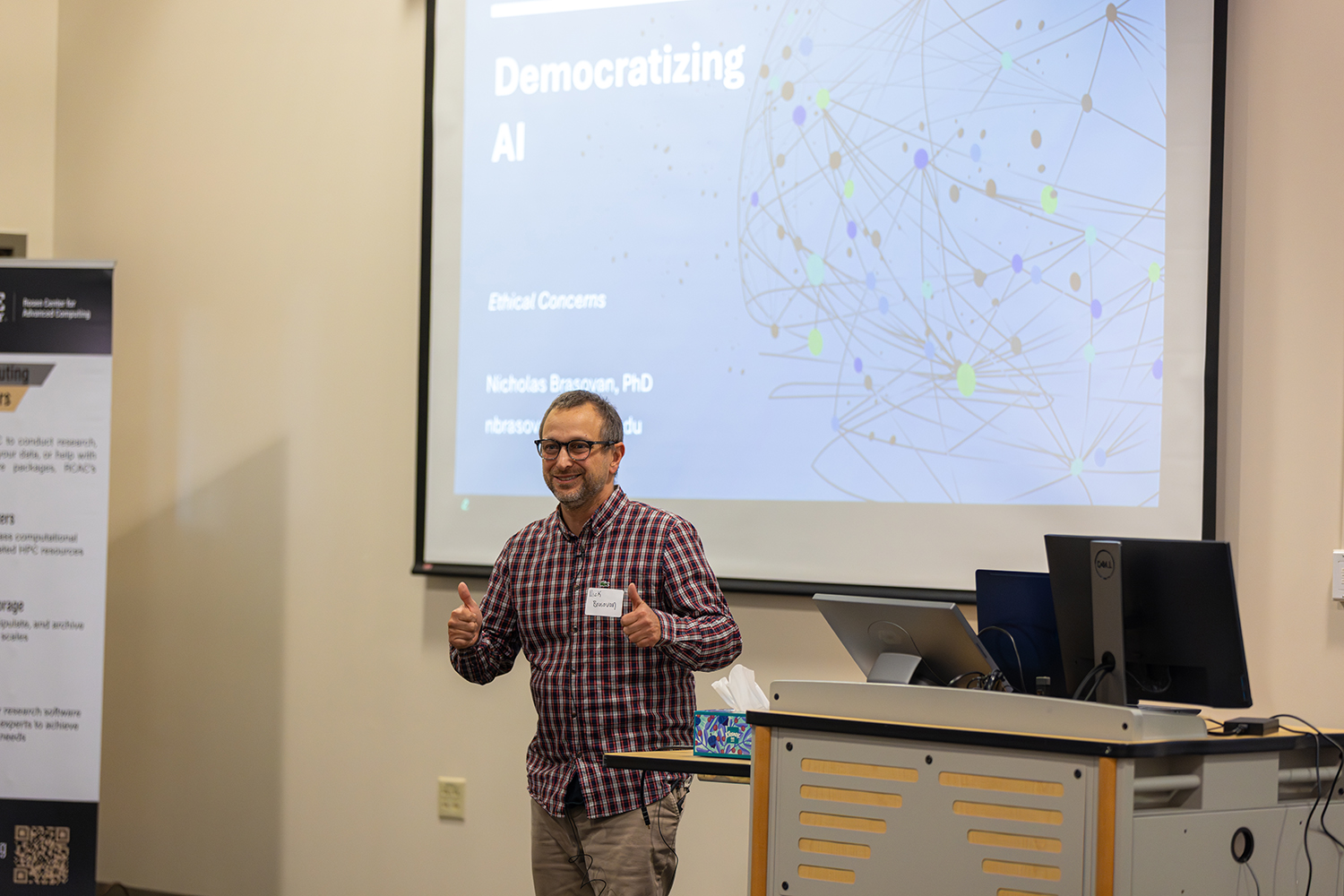
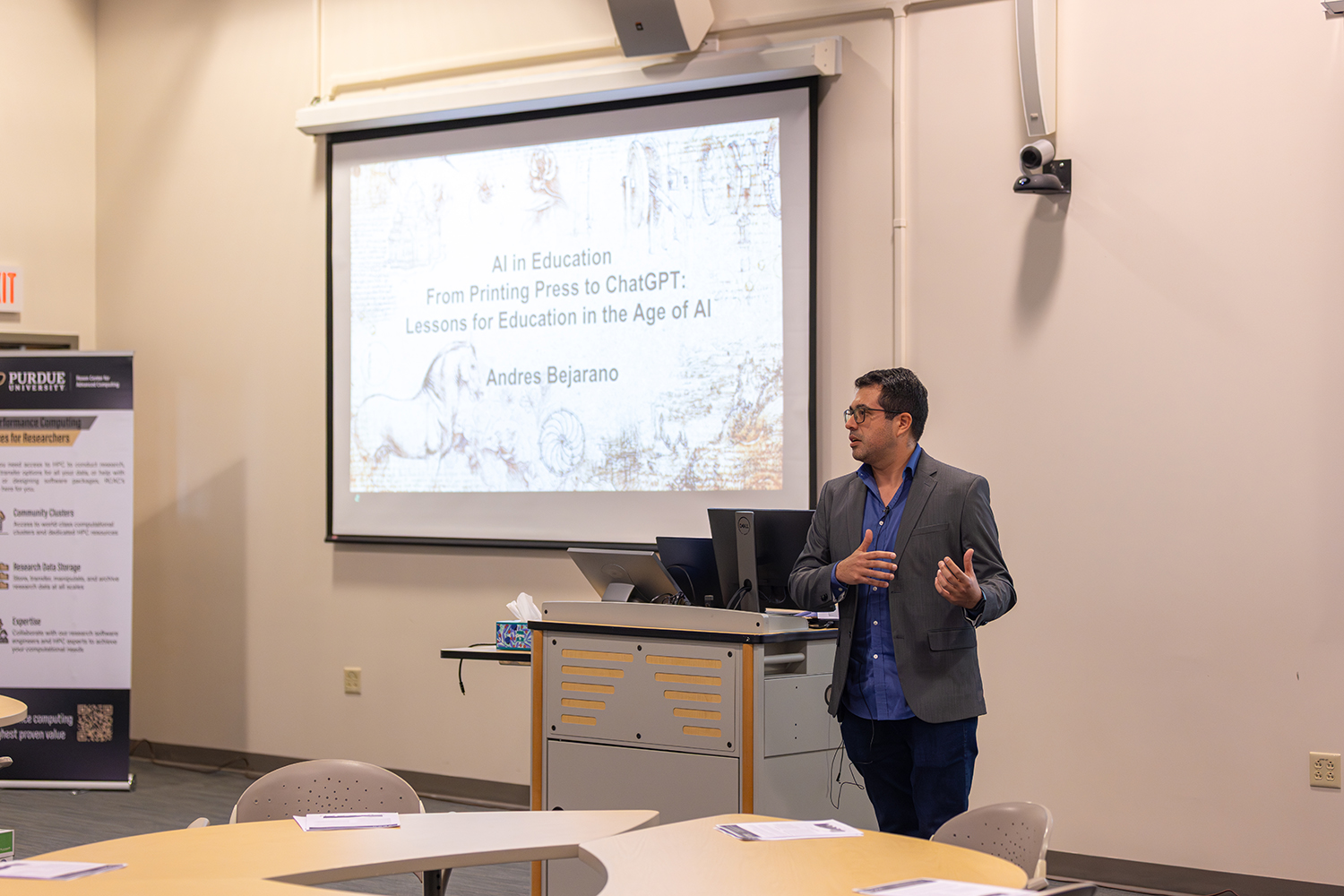
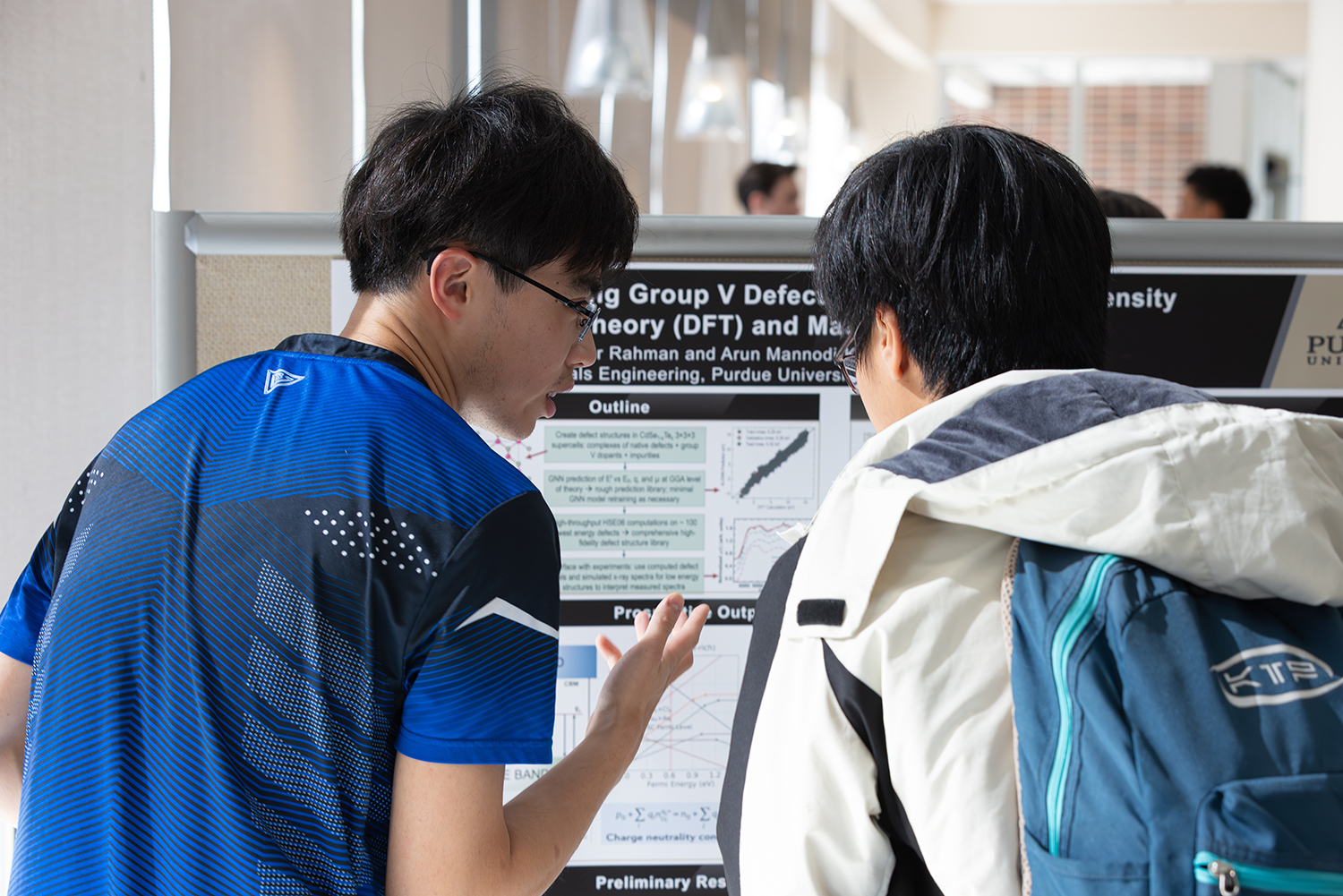
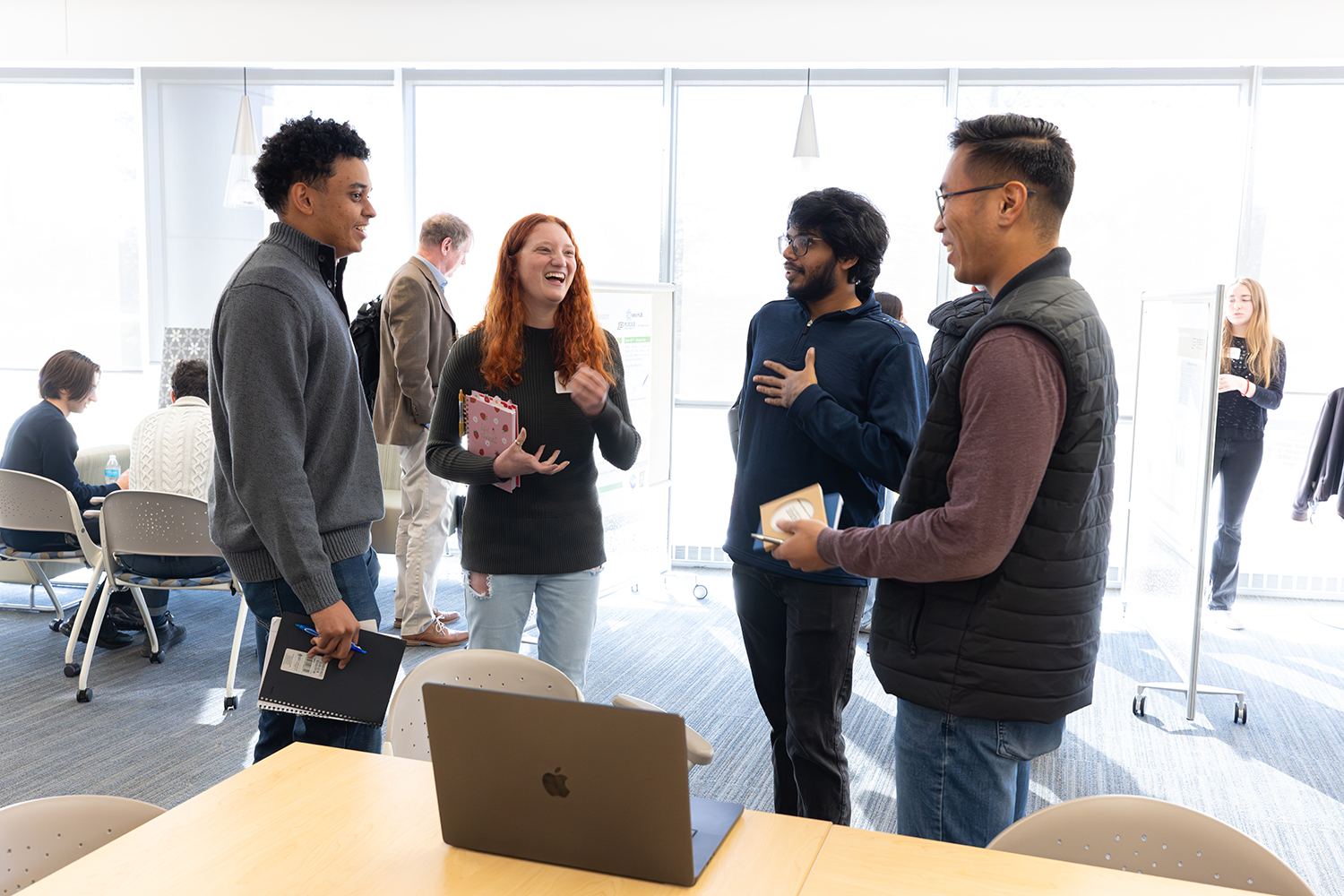
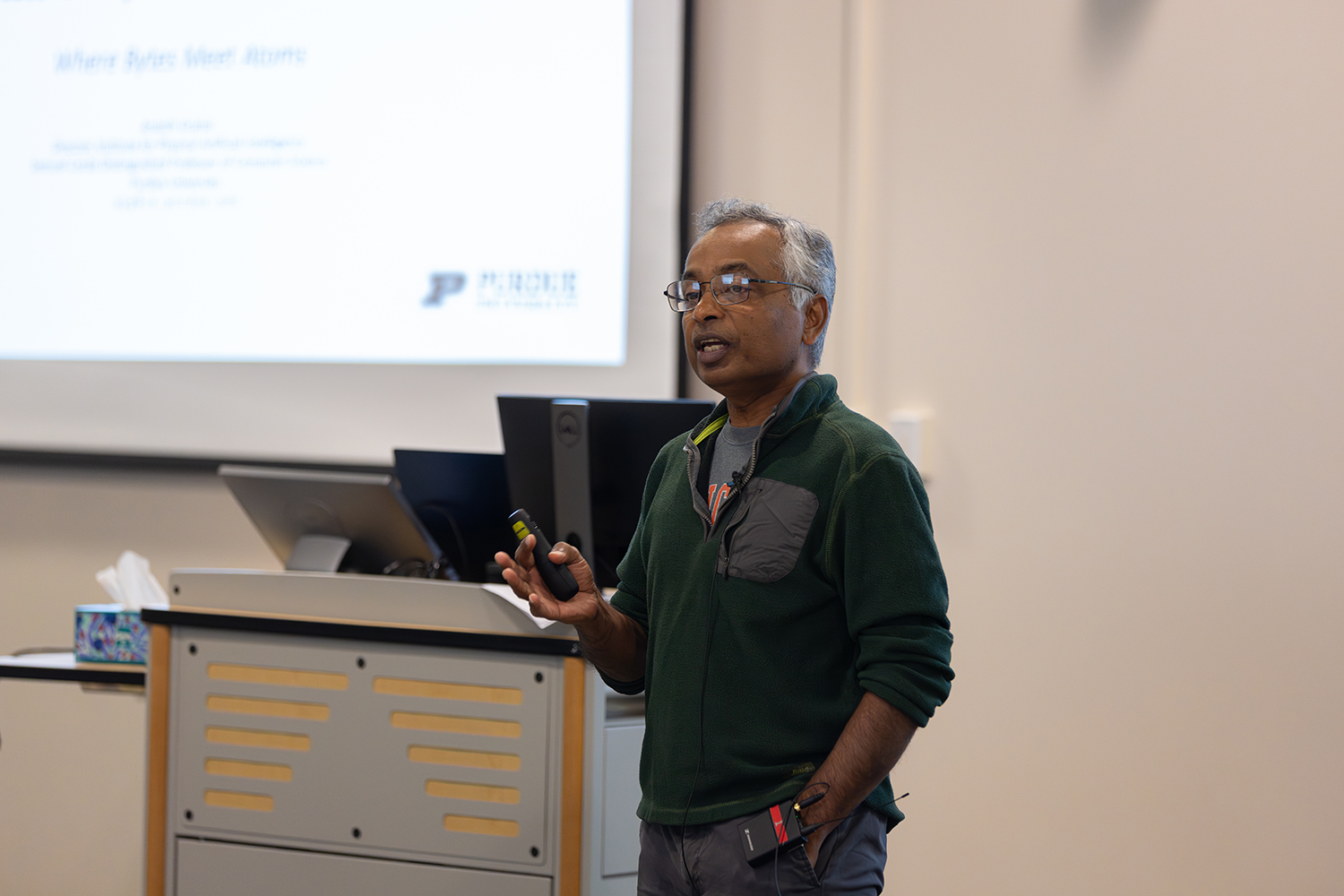
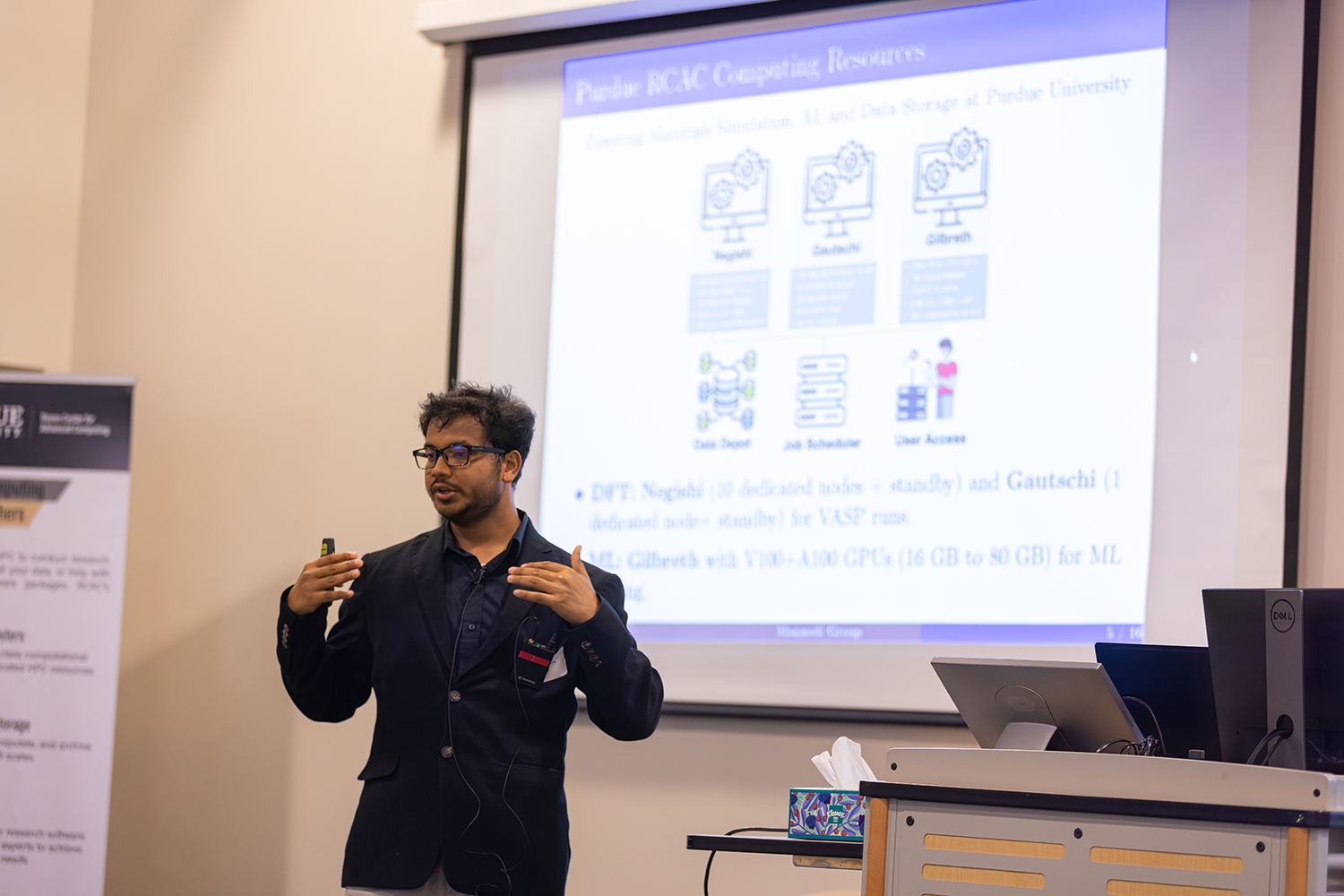
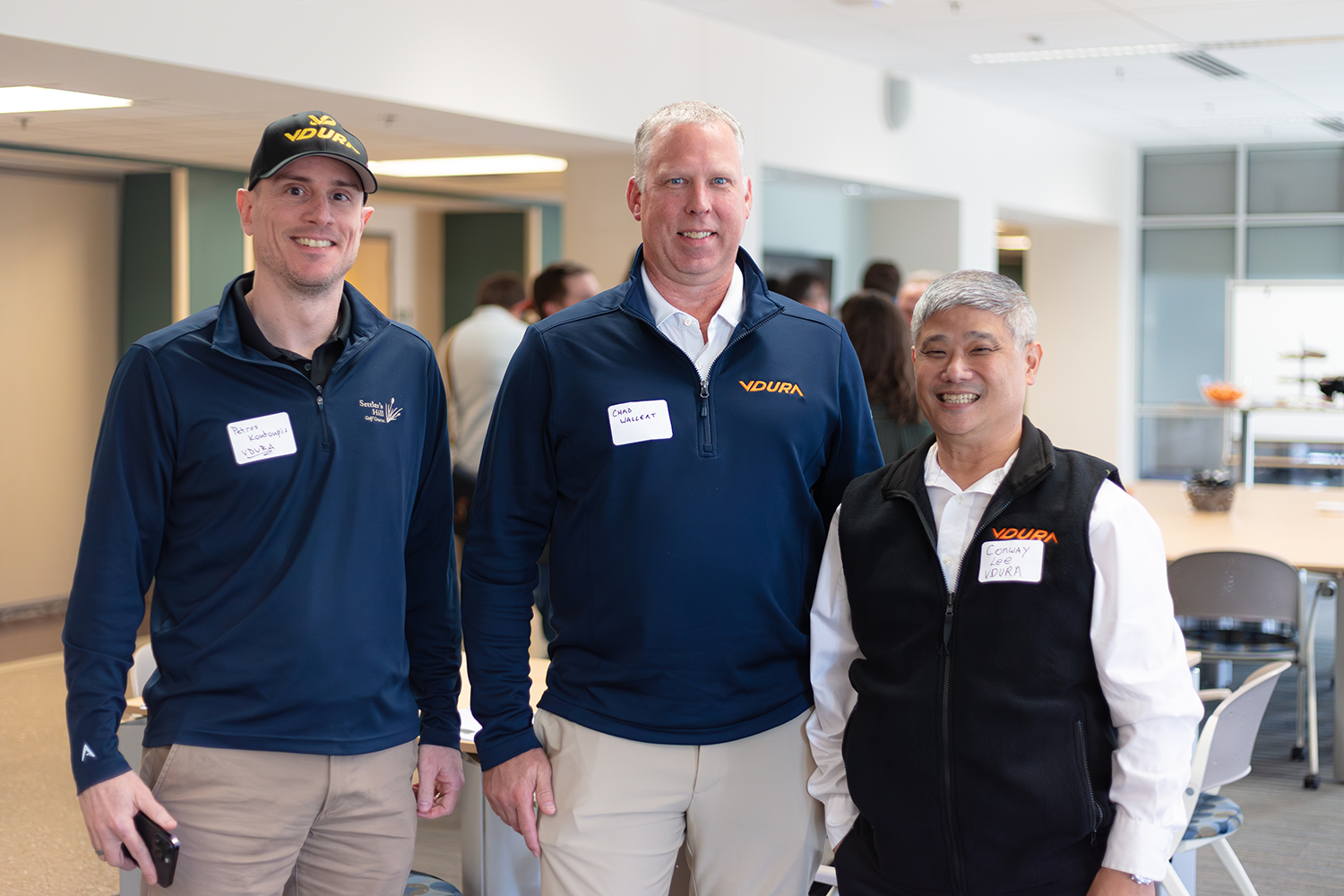
Written by: Jonathan Poole, poole43@purdue.edu
